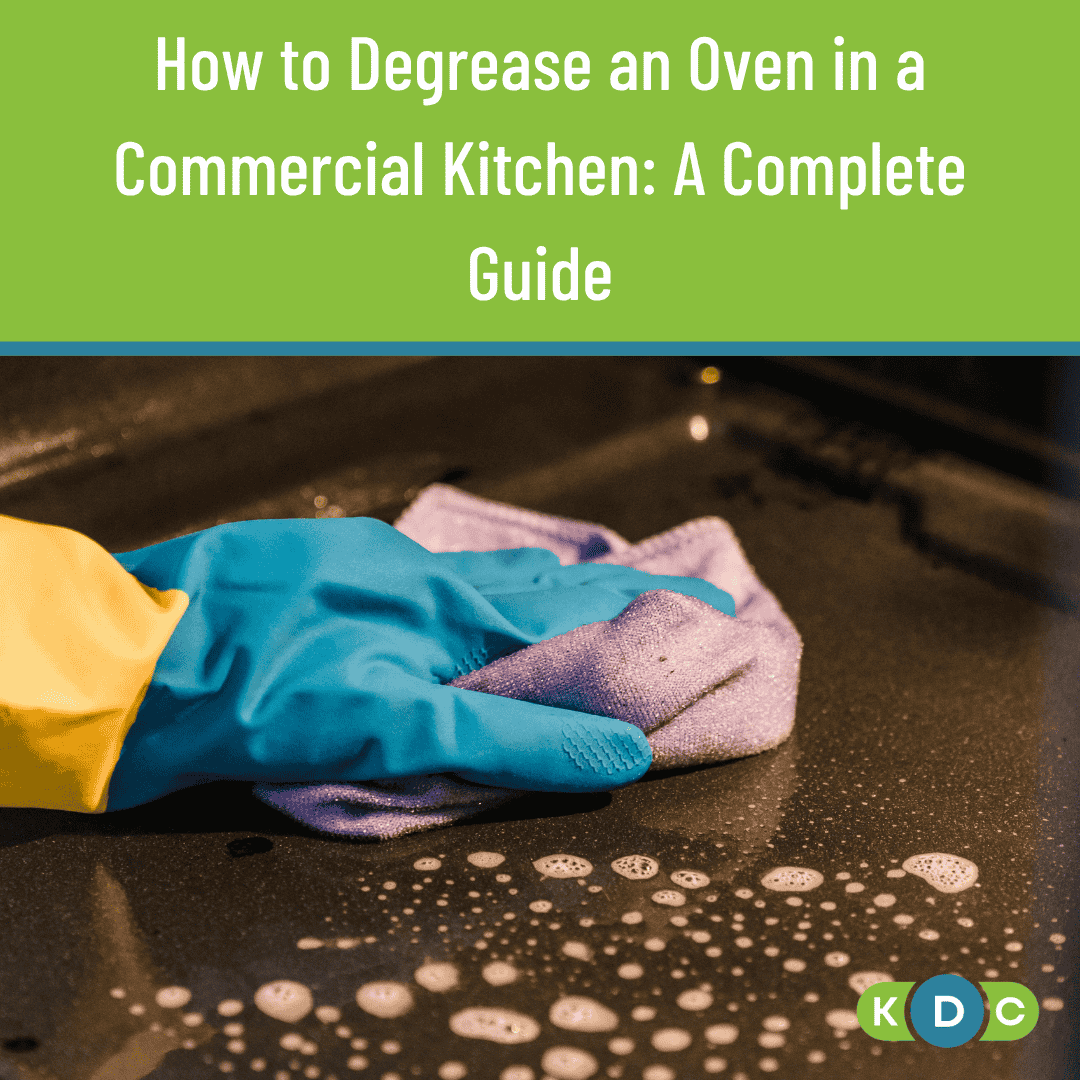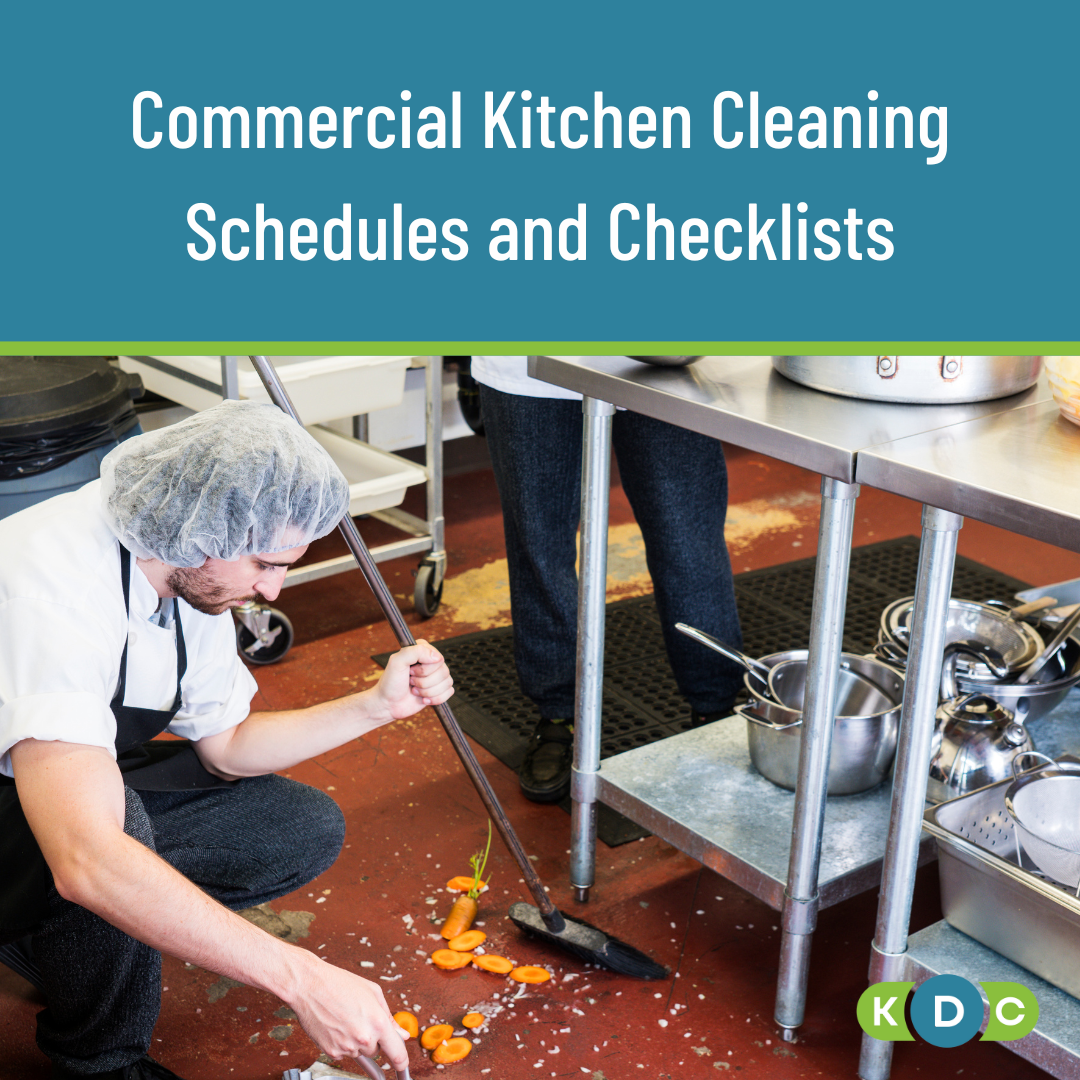How to Degrease an Oven in a Commercial Kitchen: A Complete Guide
Master degreasing an oven with our comprehensive guide for commercial kitchens. Safety tips, cleaning techniques and professional maintenance advice.
Your commercial oven is the beating heart of your kitchen. Think about it. It’s working flat out during every service, taking a proper battering from grease, food residue and whatever else gets thrown at it. So keeping that oven spotless is a non-negotiable when it comes to food safety, hygiene and keeping your whole operation running like clockwork.
Neglect oven cleanliness, and you’re asking for trouble. Grease build-up and carbon deposits don’t just sit there looking grim. They can mess with your food’s taste, make your oven work harder (hello, higher operating costs) and create serious fire hazards. Nobody wants their kitchen going up in smoke because they couldn’t be bothered with a proper clean, right?
The good news? Degreasing an oven properly keeps your commercial kitchen humming along nicely. You’ll get better cooking efficiency, extend the life of your kit − and even save a few quid on energy bills and repairs. This guide will walk you through exactly how to degrease an oven the right way, plus share some proper oven cleaning tips that’ll keep your oven in top nick.
Safety First: No Shortcuts Here
Before you even think about getting stuck in, safety first is absolutely paramount. We’re not messing about here – cleaning a commercial oven that’s still hot is downright dangerous and frankly daft. Always make sure your oven is switched off and cooled down completely. Give it at least 30 minutes after turning it off because that thing holds heat like nobody’s business.
Here’s what you need to sort before you start:
- Always wear proper protective gear – gloves, goggles and face shields when you’re dealing with industrial degreasers and chemical cleaners.
- Make sure you’ve got adequate ventilation because those cleaning fumes aren’t doing anyone any favours. A well-ventilated kitchen is crucial for safety.
- Stick to the manufacturer’s guidelines for all your cleaning products.
Trust us, taking a few extra minutes to prep properly beats a trip to A&E any day of the week.
Tools and Materials You’ll Need
Right, let’s talk kit. You’ll want to get yourself sorted with:
Essential Cleaning Gear
- Industrial degreaser or commercial-grade oven cleaner
- Non-abrasive scrubbers, sponges, or soft-bristled brushes (leave the steel wool in the cupboard – it’ll scratch everything)
- Gloves and other protective gear
- Microfiber cloths or clean, damp cloths
- Plastic scraper or putty knife
For Those Who Fancy Natural Oven Cleaners
- A baking soda cleaning solution (bicarbonate of soda works a treat)
- White vinegar
- Lemon juice if you’re feeling fancy
Don’t Forget
- A small dustpan and brush or vacuum cleaner attachment for loose debris
Look, we think it’s worth splashing out on high-quality, heavy-duty cleaning products designed for commercial kitchen use. Your oven will thank you for it and you’ll get the job done without scratching anything important.
Step-by-Step Guide: How to Degrease Your Commercial Oven
Remove Oven Racks and Accessories
Once your oven has cooled down, start by taking out all the racks, trays, and removable bits like fan covers. Chuck the racks and trays in a sink or large container filled with warm, soapy water and let them soak for at least 20 minutes. This loosens up all that stubborn grease and grime.
For really baked-on nastiness, try adding a couple of dishwasher tablets or a scoop of biological washing powder to the soaking water – works like magic. You can line your sink with aluminium foil to protect it while you’re at it.
After soaking, give the racks a good scrub with a non-abrasive sponge. Remember, no steel wool when cleaning oven racks – it’ll damage the finish. Rinse everything thoroughly and set it all aside to dry completely.
Scrape Away Loose Debris
Before you start with the proper cleaners, use a plastic scraper or putty knife to gently remove loose debris and food particles from inside the oven. Get the bulk of the grease off the oven walls and bottom first.
Use a handheld vacuum cleaner attachment or small dustpan and brush to collect crumbs from those hard-to-reach corners. This step makes everything that follows much more effective – trust us on this one.
Apply Commercial Degreaser or Oven Cleaner
Now for the serious business. Apply your degreaser or oven cleaner evenly over the oven interior surfaces, paying special attention to areas with heavy grease build-up. Follow the manufacturer’s instructions to the letter and let the cleaner sit for the recommended time – usually 5-10 minutes, but heavy-duty jobs might need up to an hour or even overnight.
If you’re going the natural route with baking soda paste, slap it on thick over affected areas. For really burnt-on grease, let it sit for 15-20 minutes or overnight. Just don’t mix baking soda and vinegar directly. Apply the paste first, wipe it off, then spray with vinegar to wipe away any remaining residue.
Clean the Oven Interior
After your cleaner’s had time to work its magic, wipe down all surfaces from top to bottom with a clean, damp cloth. For tough stains and persistent baked-on grease, use your non-abrasive scrubber or soft-bristled brush to gently scrub the surface.
You can use a razor blade scraper on the bottom of the oven for really stubborn, charred spots, but always lubricate the surface and use light pressure to avoid scratching.
Gently lift heating elements to clean underneath – that’s where grease and grime love to hide. If any cleaner gets on the element, wipe it off thoroughly with a damp cloth. Be careful around any wiring, switches, or light sockets – keep water and soap away from these components.
Don’t Forget the Door, Vents and Exterior
Clean the oven door: The oven door takes a right beating from grease and food splatters. Use a mixture of vinegar and water or glass cleaner for a streak-free shine. For tougher stains, baking soda paste works brilliantly. A clean oven door glass means you can actually see what’s cooking without opening it constantly.
Clean the oven vent and fans: These often get neglected, but they’re crucial for proper airflow and temperature regulation. Use a soft brush or vacuum cleaner to remove grease and dust from fan blades. Grease build-up here affects heat distribution and can cause overheating.
Focus on the oven exterior: Clean the outer surfaces with mild detergent and a soft cloth. Harsh chemicals can damage stainless steel, and nobody wants a scratched-up oven that looks like it’s been through the wars.
Rinse and Dry Thoroughly
After all that hard work, wipe down all surfaces with a clean, damp cloth to remove any remaining cleaner residue. Dry the inside of the oven and all components thoroughly with a clean microfiber cloth to prevent streaks and water spots. Make sure all removable parts are completely clean and dry before putting them back.
Common Mistakes to Avoid
Right, let’s talk about the silly mistakes that’ll either damage your oven or leave you in a right state:
- Cleaning while the oven’s still hot – we’ve covered this, but it bears repeating.
- Using abrasive tools like steel wool or wire brushes that’ll scratch surfaces and make grease stick easier next time.
- Mixing different chemical cleaners – this can cause dangerous reactions that nobody wants.
- Spraying oven cleaner directly onto heating elements or fan motors, which risks proper damage.
- Neglecting ventilation during cleaning – those fumes aren’t your friends.
- Overusing water, which can seep into electrical components.
- Skipping the rinse step and leaving chemical traces that affect food safety and taste.
- Not cleaning your cleaning rags – spreading contamination defeats the whole point.
Maintaining a Regular Cleaning Schedule
Here’s the thing about oven maintenance – prevention beats cure every single time. You need a proper cleaning schedule based on how hard your oven works:
Daily cleaning: Quick wipe of spills, crumbs and exterior surfaces. This stops food debris from getting baked-on and becoming a nightmare to shift later.
Weekly cleaning: More thorough degreasing of the interior and racks. Get into the habit and it becomes second nature.
Monthly deep cleaning: Time to inspect and clean critical components like fans, seals and burners. If you’ve got steam or combi ovens, this is when you de-lime and de-scale them too.
The beauty of frequent cleaning is that it prevents grease build-up, making each session easier and keeping your oven running efficiently for longer.
Remember that even with a self-cleaning oven, you’ll still need to clean the door, exterior surfaces, and ventilation systems manually. The automatic cycle only handles the interior cavity. And if your self-cleaning oven starts smoking excessively during its cleaning cycle, it's usually a sign there's too much grease for the system to handle properly.
When to Call in the Professionals
Look, we’re all for rolling up your sleeves and getting stuck in, but sometimes you need to know when you’re beaten. Professional oven cleaning services make sense when you’re dealing with:
- Excessive grease build-up that just won’t budge
- Complex, hard-to-reach parts that need specialist attention
- Persistent performance issues like uneven heating or slower cooking times
- Persistent odours or smoke during operation
- Poor ventilation or blocked exhaust systems
Professional cleaners like us have the experience and specialised tools to tackle even the toughest commercial oven cleaning jobs. We can get your oven cleaned to the highest standard, reducing contamination risk and improving your overall kitchen cleanliness.
Plus, regular professional cleaning saves time and extends equipment life, meaning fewer expensive repairs or replacements down the line.
Need Our Help?
A clean commercial oven is absolutely key to maintaining a healthy and efficient commercial kitchen. By following these comprehensive oven cleaning tips and maintaining a regular schedule, you can keep your oven ready for the next busy shift while protecting food safety and hygiene standards.
If cleaning your industrial oven is becoming too much of a faff, or you want a deeper, more thorough clean of all of your appliances, don’t hesitate to give Kitchen Hygiene Ltd a shout. Our team’s equipped to handle all your oven cleaning needs, giving you more time to focus on what you do best – running your kitchen. Contact us for a FREE quote.













